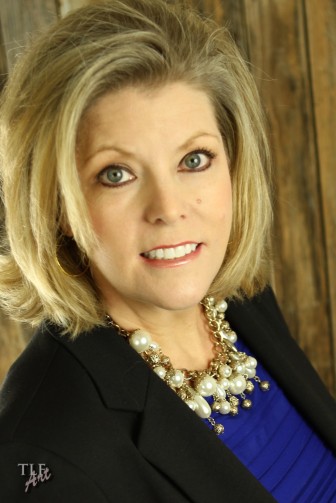 Barbara Moore
Barbara MooreRepublican
Website
Age: 43
Occupation: Executive Director of the North Carolina Conference of Clerks of Superior Court
City: Garner
Very few people actually know what the Clerk of Court does. What information should voters know about this office in order to cast an informed vote?
When people hear the word Clerk, they think record keeper, they think administrative, but the Clerk is the comptroller. They handle millions of dollars of cash transaction a year. They are the judge of probates; they handle all probate matters. They do adoptions, foreclosures, and special proceedings. They manage: in Wake County alone, they have 167 employees. So, the main thing that people need to understand and take away is that the Clerk is more than the name, a Clerk. They are the central part of the court system. No case, whether it be civil, criminal, or any kind of adjudication comes into the court house unless it goes to the Clerk’s office first. So every piece of justice that is served in Wake County starts in the Clerk’s office. So people need to be informed and do their homework on what they’re voting for.
Tell us about your experiences and why they would help you as Clerk of Court.
I’ve been working with the court system for 18 years. I started with the Attorney General’s office, where I was an administrative assistant working for all 100 elected sheriffs, developing their training programs and doing certification for law enforcement officers, so I work hand-in-hand with law enforcement. I left there and went to the Conference of District Attorneys and spent the next 11 years developing training programs, working with District Attorneys to improve effectiveness and efficiencies in the court system. In the District Attorneys’ offices, I traveled all over the nation to see how other states improved processes. I was in charge of a program called the Innovative Prosecution Program. I brought my ideas to North Carolina that helped improved efficiencies within the District Attorney’s offices. And for the last seven years I’ve been the Executive Director of the North Carolina Conference of Clerks of Superior Court. That’s a really long name to just say I worked for every county from the smallest county in the state to the largest county in the state, with staffs of five up to staffs of 200. My experience in being able to see how the system works from law enforcement to prosecutor to Clerks lends itself to make me the candidate that can cross all barriers and bring to Wake County the efficiency that we can see state wide and can accomplish.
The current Clerk of Court is not seeking re-election. What changes or improvements would you work for if you are elected as the next Clerk?
The current administration has done a good job building bridge between the different players in the courthouse and I would like to see those changes continue. One of the things that can be approved upon is the communication in the court system and between the players. Like I said, because of my experience working with law enforcement and District Attorneys and judicial officials improving that communication, thinking outside the box, and reaching out to different communities and helping answer some of the questions that arise between citizens and the judiciary. One of the breakdowns is in communication and I would want to improve communication so that citizens can be heard easier, have an easier access to justice.
The Clerk’s office is responsible for managing some tasks that can be highly emotionally charged for some citizens, such as the foreclosure of property, or the division of an estate after a relative’s death. What can you do to help citizens in such a crisis with facing the paper work and filings required by the Clerk’s office?
I think the main attribute that a Clerk must have is a compassionate heart and a servant’s heart, too. To be a true leader, you have to serve others and when people come into the office and they’ve just had the death of a loved one or their facing the fear of foreclosure of their home and losing their life and everything that they’ve loved. It takes someone that can be compassionate and show empathy, somebody that’s walked in their shoes.
The one thing that I am is a real person. I’m a single mother; I raised my daughter on my own, I put myself through college, and now I am in law school, working a full-time job, and running a campaign. There’s not many walks of life or places that the citizens of Wake County have been through that I haven’t been through. I’ve been on the brink of foreclosure, I’ve lost loved ones and had to go to a Clerk’s office in a different county and ask, with tears in my eyes, how do I probate my uncle’s will who died suddenly. It is that empathy and compassion that is necessary along with the strength to stand up against what is wrong. And the other, the flip side of not only the sadness of the emotion, is the happiness. We get families in: Clerk’s do adoptions. Things like that are happy days. So you need to be able to let your staff share in those joys with the people that are coming in with happy moments also.